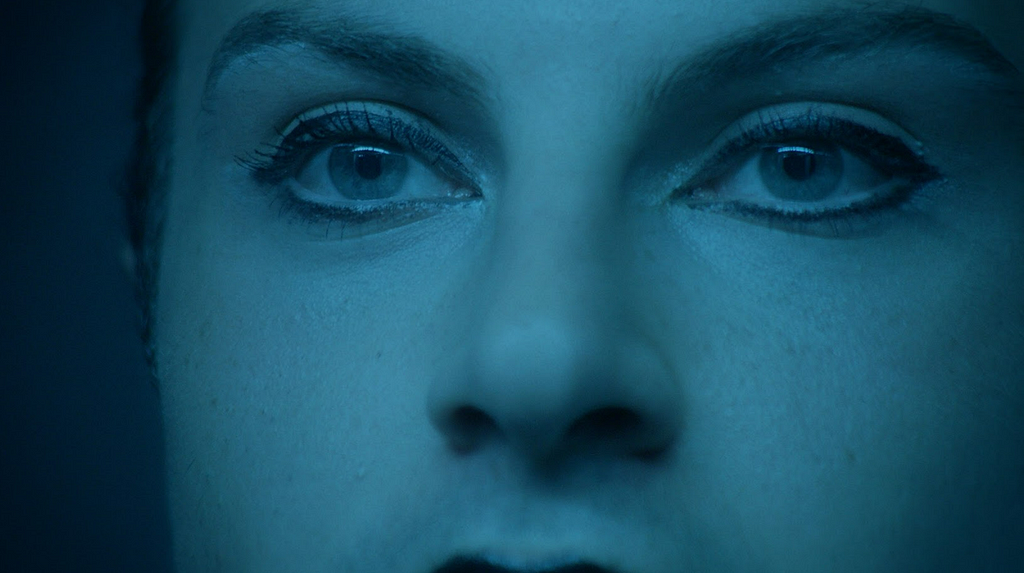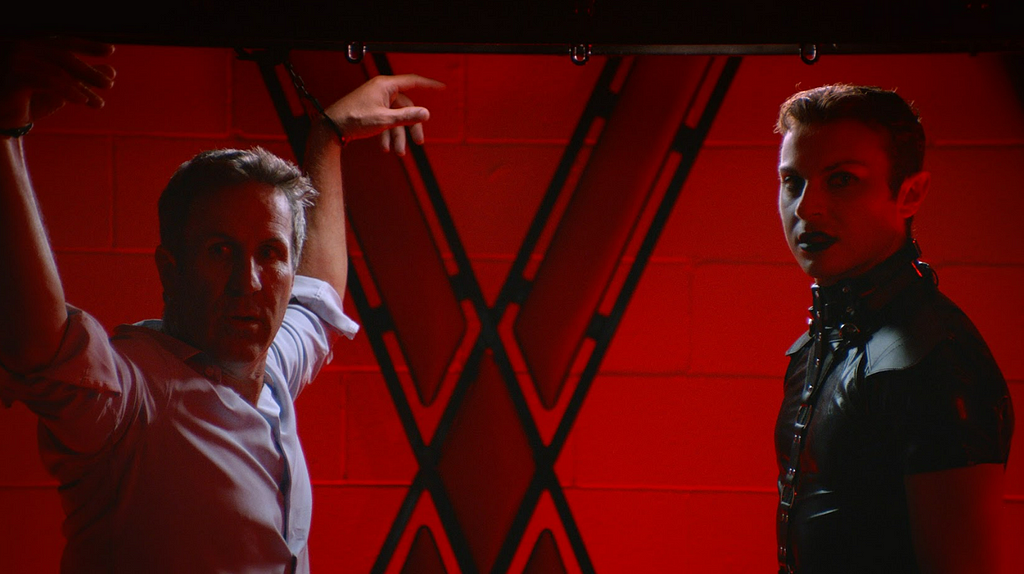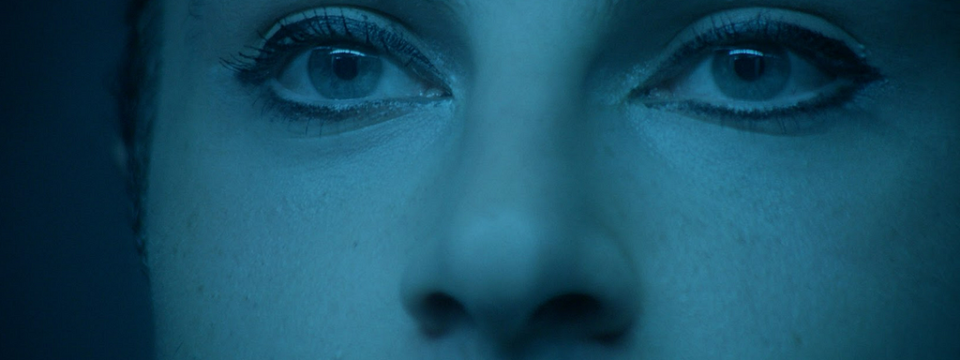Filmmakers Making A Social Impact: Why & How Filmmaker Matthew Campanella Is Helping To Change Our World

Don’t be so hard on yourself: when I was in school and starting to audition professionally I would punish myself in order to feel like I “prepared enough.” I would literally stay in and prep for days on an audition and not allow myself to go out or socialize. You should definitely prepare, but also be mindful that you need to build a happy life in order to bring your full self to the table.
As a part of our series about “Filmmakers Making A Social Impact” I had the pleasure of interviewing Matt Campanella.
Matt Campanella is a multi-hyphenate with training from the London Academy of Music and Dramatic Art (LAMDA) and NYU Tisch: Stonestreet Studios. His film, Daddy Issues, was selected to world premiere at the 2023 Tribeca Film Festival. In 2021 he received the Best First Time Filmmaker Award at the Long Island International Film Expo (LIIFE).
Thank you so much for joining us in this interview series! Our readers would love to get to know you a bit better. Can you tell us a bit of the ‘backstory’ of how you grew up?
I grew up in a big Italian family on Long Island, New York. Every Sunday we would have family dinners full of homemade meatballs, delicious tomato sauce, and humorous bickering. I’m a true New Yorker, addicted to coffee, bagels and pizza.
Can you share a story with us about what brought you to this specific career path?
I’ve always been captivated by storytelling. When I was eight, I would go outside in my backyard with my younger brother and create a whole world out of nothing. Some days it was imagining we were the movie characters in Narnia or Spy Kids. Acting specifically has always been the foundation of my creative self. However, in my late teens I became interested in taking on a more integral role in creating stories from the ground up. As a result, I began to write and direct.
Can you share the funniest or most interesting story that occurred to you in the course of your filmmaking career?
In university, I was directing The Flick, by Annie Baker, and was struggling to cast the female lead. While studying in one of the academic buildings, I spotted a student with bright pink hair who, physically, exemplified the character very accurately. I decided to grab coffee with her, discuss the play/ my vision, and eventually offer her the role. She had zero acting experience, but together we crafted an incredible performance that my professors were very impressed by. A lot of the success was due to the trust we had for each other, her curiosity to understand the character and ability to really let go. The experience taught me that, as a director, inspiration is everywhere and it’s super important to be open to unconventional ways of telling stories.
Who are some of the most interesting people you have interacted with? What was that like? Do you have any stories?
I would say the most interesting people are all around us: the people you pass on the street, see at the coffee shop, or meet while travelling. Each person has an interesting narrative, his/her/ their own vibrant journey. I spent a month in Italy last year and met some very interesting, funny, awesome people.
None of us are able to achieve success without some help along the way. Is there a particular person who you are grateful towards who helped get you to where you are? Can you share a story about that?
Absolutely. I have so many people to thank for helping me get to Tribeca. One person I’ll point to is my Nana. Both of my parents worked full time in Manhattan growing up, so she would babysit my siblings and I. More specifically, she would buy these really interactive, academic books full of math and english exercises. I remember they had animal stickers and prizes. She would review the concepts with us for like an hour after school, helping us find enjoyment in academics and problem solving. I would say as a result, she really helped instils a hard work ethic and perseverance, which has definitely helped me in my career today.
Can you please give us your favorite “Life Lesson Quote”? Can you share how that was relevant to you in your life?
“Everything happens for a reason.” This quote can be applied to all aspects of our lives: career, dating, friendships, and new opportunities. As an actor, if I don’t get the role I just think: it’s a sign and it’s truly meant to be. Really helps shift your mindset from “I was rejected” to “the universe is making space for something even better.”
I am very interested in diversity in the entertainment industry. Can you share three reasons with our readers about why you think it’s important to have diversity represented in film and television? How can that potentially affect our culture?
Diversity is extremely important, especially within film/ tv. Firstly, collaborating with people of different walks of life, ethnicities, gender expressions, sexualities, etc helps foster innovation and new ideas. It facilitates the creation of stories that are fresh and haven’t been told before. Secondly, more diversity means that projects will reflect a more authentic and accurate picture of our world. Lastly, diversity innately helps inspire and boost others, notably the younger and more impressionable, the future artists of our generation.
What are some of the most interesting or exciting projects you are working on now?
I’m currently adapting Daddy Issues into a feature film, sharpening two television pilots in the vault, and finishing post production on a drama that I wrote/ directed/ produced this year. I’m also aiming to shoot a drama, Fish Out of Water (writer, director) over the summer as well as a comedy, Sunday Sauce (writer, director, actor) during the fall.
Which aspect of your work makes you most proud? Can you explain or give a story?
As a director, I think looking at the final product and seeing all of the different departments coming together to align to this one vision is what I’m most proud of. Certainly with Daddy Issues, we encountered several challenges along the way and I was working with both friends and collaborators I’d never met until the day of shooting. As such, there were and always are unknowns when creating a film, but it makes me really proud to look back and know that we all came together, collaborated, and trusted the process.

Ok super. Here is the main question of our interview. What are your “5 things I wish someone told me when I first started” and why. Please share a story or example for each.
- Everything happens for a reason: I’ve definitely had my fair share of audition horror stories and let downs from not getting roles I wanted. But if I got that series regular role on that Showtime show, I probably wouldn’t feel compelled to make my own film, which eventually led me here, interviewing for a Tribeca world premiere film that I wrote, directed, produced and starred in.
- Focus on the WORK: the more and more I focused on writing and creating comedic sketches, one page scenes, films, television pilots, the more I became in tune with my artistic sensibility and voice, which, in my opinion, is your calling card.
- Take advice, but know yourself better than anybody else: I have so many amazing, encouraging people in my life. But there were also some pessimists along the way, in which case I say: you are the only person who needs to believe in yourself.
- Don’t be so hard on yourself: when I was in school and starting to audition professionally I would punish myself in order to feel like I “prepared enough.” I would literally stay in and prep for days on an audition and not allow myself to go out or socialize. You should definitely prepare, but also be mindful that you need to build a happy life in order to bring your full self to the table.
- Try to enjoy it: we all went into this career because we love storytelling. But oftentimes, we can put pressure on ourselves and stress about the factors out of our control. Try to remember why you did this in the first place.
When you create a film, which stakeholders have the greatest impact on the artistic and cinematic choices you make? Is it the viewers, the critics, the financiers, or your own personal artistic vision? Can you share a story with us or give an example about what you mean?
My own personal artistic vision- 100%. When I created Daddy Issues, that was certainly the case. This was a story I had never seen before, that covered a very taboo topic, and quite frankly I was a bit scared by the notion of creating such a bold piece. However, I’ve learned that if I’m scared to take on a role or create something, oftentimes that’s a good thing; It means that we’re doing something innovative.
You are a person of great influence. If you could start a movement that would bring the most amount of good to the most amount of people, what would that be? You never know what your idea can trigger. 🙂
I think it would be forging a program that fosters creativity and collaboration. Perhaps a writer’s retreat or a camp that helps people in diverse, underrepresented communities express their artistic voice, specifically LGBTQ+ youth.
We are very blessed that some of the biggest names in Business, VC funding, Sports, and Entertainment read this column. Is there a person in the world, or in the US whom you would love to have a private breakfast or lunch with, and why? He or she might see this. 🙂
Brit Marling is someone who’s inspired my own career in filmmaking.. We have similar trajectories: we both studied economics/ business in college, had stints in the business world, turned to acting, and started writing as a way to create roles for ourselves.
How can our readers further follow you online?
You can follow me on instagram @matthewcampanella and visit my imdb: https://www.imdb.com/name/nm8473173/ for more updates on my career
This was very meaningful, thank you so much! We wish you continued success!
Filmmakers Making A Social Impact: Why & How Filmmaker Matthew Campanella Is Helping To Change Our… was originally published in Authority Magazine on Medium, where people are continuing the conversation by highlighting and responding to this story.
